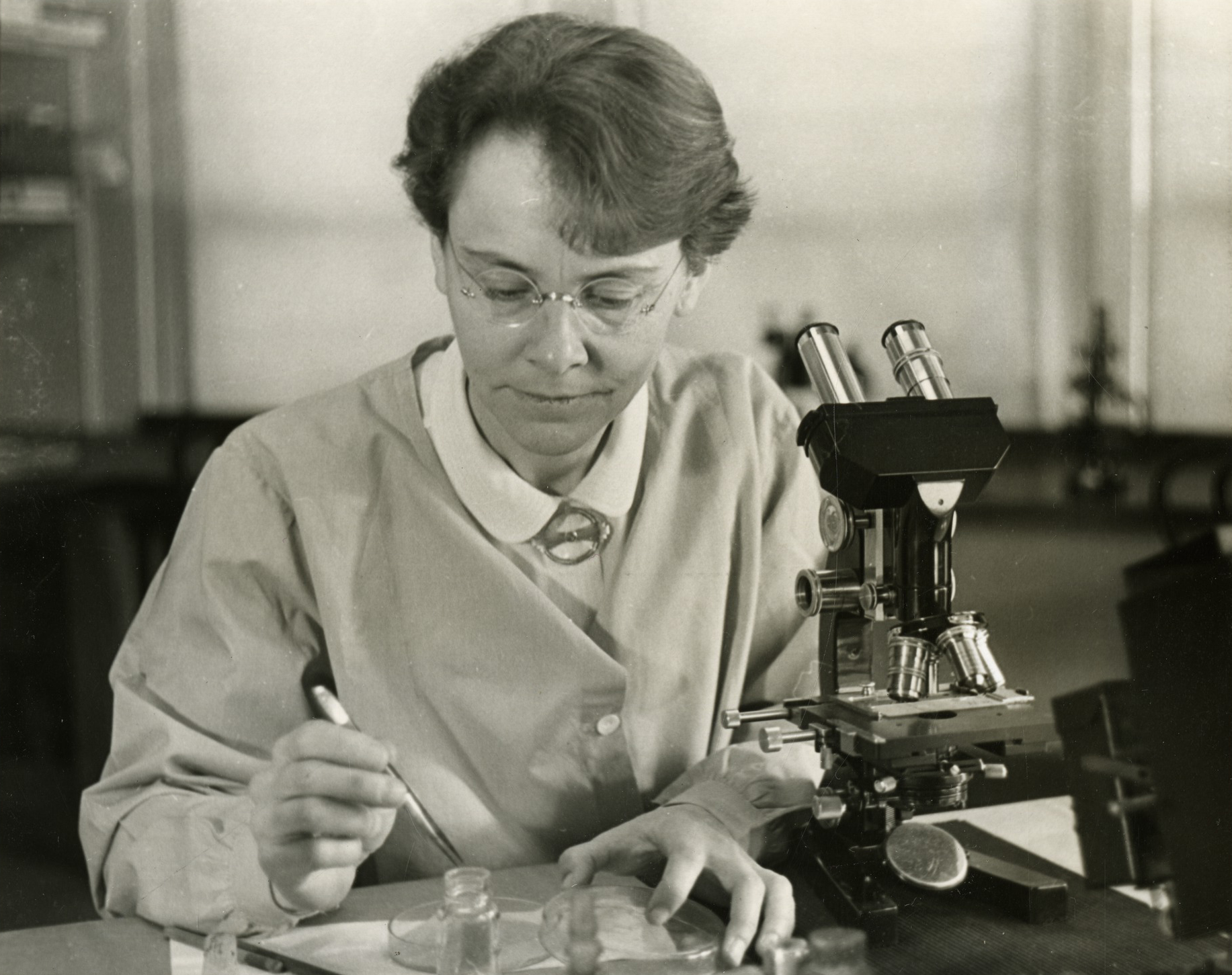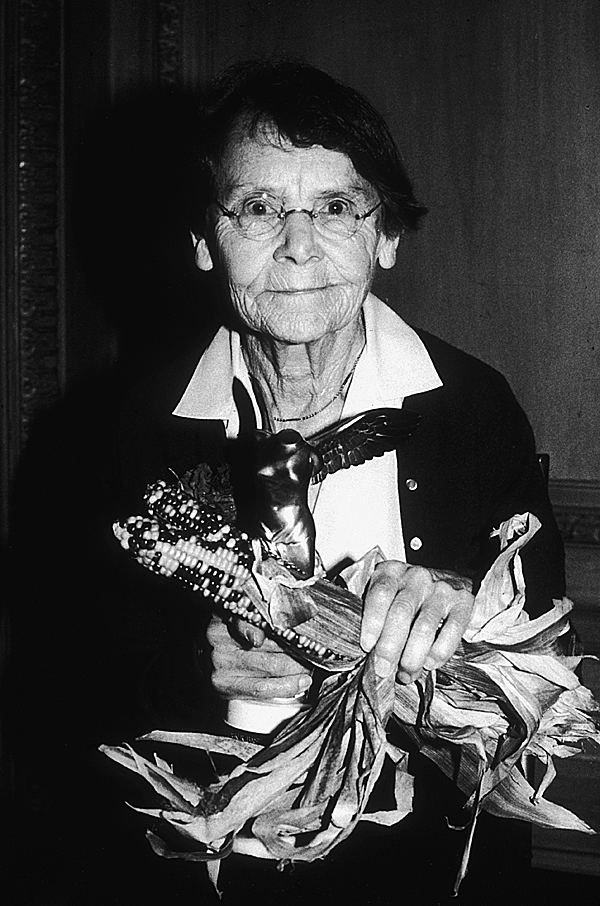McClintock, Barbara (1902-1992), an American geneticist, won the 1983 Nobel Prize for physiology or medicine. She received the award for her discovery that certain genes can change their position on the chromosomes of cells. She called these genes mobile genetic elements. Today, they are more often known as transposable elements or transposons. Scientists have found that transposons occur in all organisms, including humans.

McClintock studied the way corn inherits its traits. In 1931, she showed that different chromosomes can break and exchange parts during the formation of eggs or sperm. This process is important because it allows each egg and sperm to contain a different combination of genes. In 1951, McClintock announced her discovery of mobile genetic elements. In some corn plants, the mobile gene might be in one place on a chromosome, but in others it would be somewhere else. McClintock could tell where the mobile gene was because of its effects on nearby genes.
Scientists have since found that transposable elements make up a large portion of the genome of many organisms. A genome is the complete set of genes that make up an organism. Most transposons in organisms are inactive and have lost the ability to move. Scientists used to think of these inactive portions of genetic material as “junk DNA” that had no affect on an organism. However, scientists now realize that transposons may help modify the genome of an organism over time. Transposable elements may create mutations if they move within or near other genes. They may affect the function of other genes and have a role in the formation of new genes. Scientists have found that about one half of the human genome is made up of transposons.
McClintock was born Eleanor McClintock on June 16, 1902, in Hartford, Connecticut. Her parents later changed her name to Barbara. She received a Ph.D. degree from Cornell University in 1927. She became a member of the Carnegie Institution of Washington, D.C., in 1941. She died on Sept. 2, 1992.

